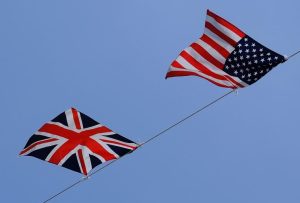Trump’s tariffs – pharma, motors and tech to be hit

Businesses are braced for choppy economic waters following Donald Trump’s global trade war, announced yesterday evening (April 2) by the US President.
Trump announced a worldwide series of tariffs on trading partners, with some predicting a downturn in growth for an already sluggish UK economy.
Barret Kupelian, Chief Economist at PwC, says “‘Liberation Day’ may sound like a celebration, but for global trade, it marks a turning point. It is a significant disruption to the international trading system. The UK avoided a direct blow—but the global economy has taken a substantial hit.
“For the UK, the impact is significant—though less severe than for some other countries. We export around £60 billion in goods to the US, including pharmaceuticals, cars, and high-tech equipment. Not all sectors will be hit equally: car exports will face higher tariffs. The regional impact also varies. Manufacturing-heavy areas like the West Midlands and East of England are especially exposed (see charts). And because many goods are sold as part of bundled packages, some UK services could also be caught in the crossfire.
“In the short term, businesses face a sharp rise in uncertainty. The one silver lining is that the retaliatory tariff rate applied to the UK is the lowest among affected countries. Our European trading partners will face steeper tariffs, though some of that economic pain will inevitably spill over to UK firms through supply chains and shared markets. Once the dust settles, we are likely to see renewed efforts to negotiate new trading terms with the US. But in the medium to long term, businesses can no longer rely on trade being predictable or stable. Strategic shifts—in sourcing, pricing and risk planning will follow.
“This is a significant pivot to power-based trade. The rules-based motorway is turning into a winding country road—resilience, not speed, will define success in this new terrain.”








